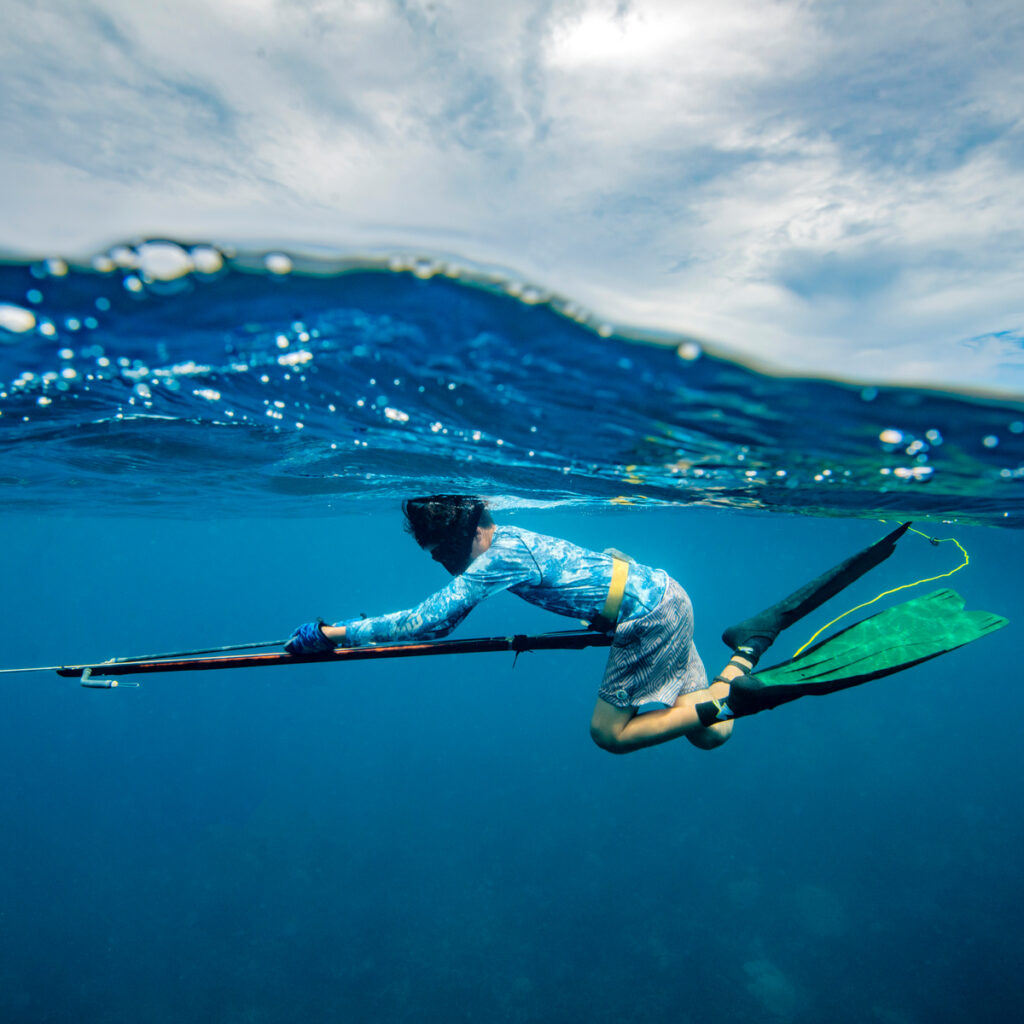 |
Rare at Our Ocean in PalauAt the recent Our Ocean Conference in Palau, Rocky Sanchez Tirona, Fish Forever’s Managing Director, spoke on the big stage, TedX style, about the importance of protecting and managing our territorial seas in the context of the 30×30 campaign. Rare also convened several events, including a Ministerial Dialogue, Fisher Leaders’ Dialogues, a Coastal 500 Champions’ Call, and a session with youth delegates that advanced statements, solutions and commitments for small-scale fishers and their fisheries. |
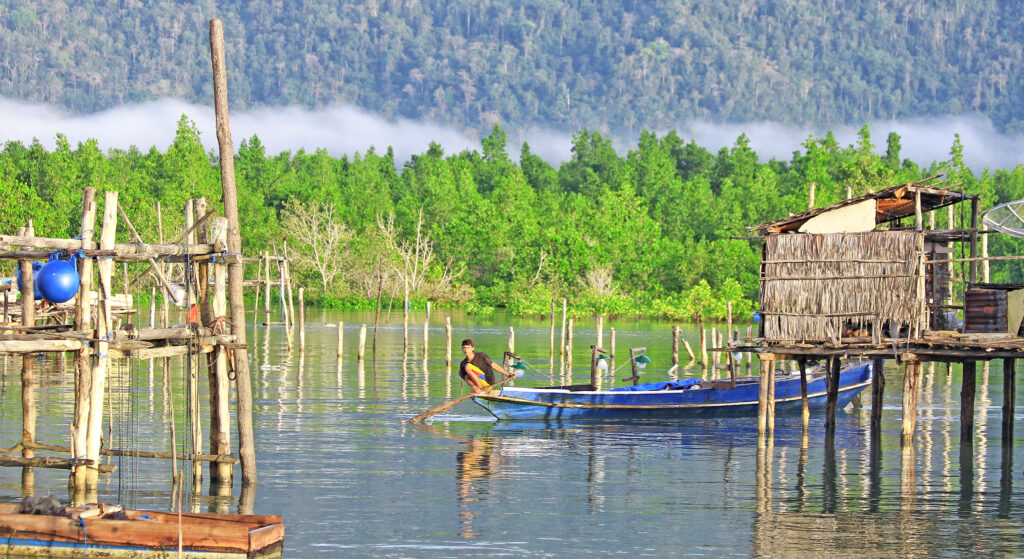
|
Article: How to Protect, and Why to Prioritize, Coastal WatersHow and why should we protect coastal waters? In this article, Devex explores Fish Forever and speaks with Rocky about how our community-led approach could help people and nature in the context of the 30×30 campaign. |
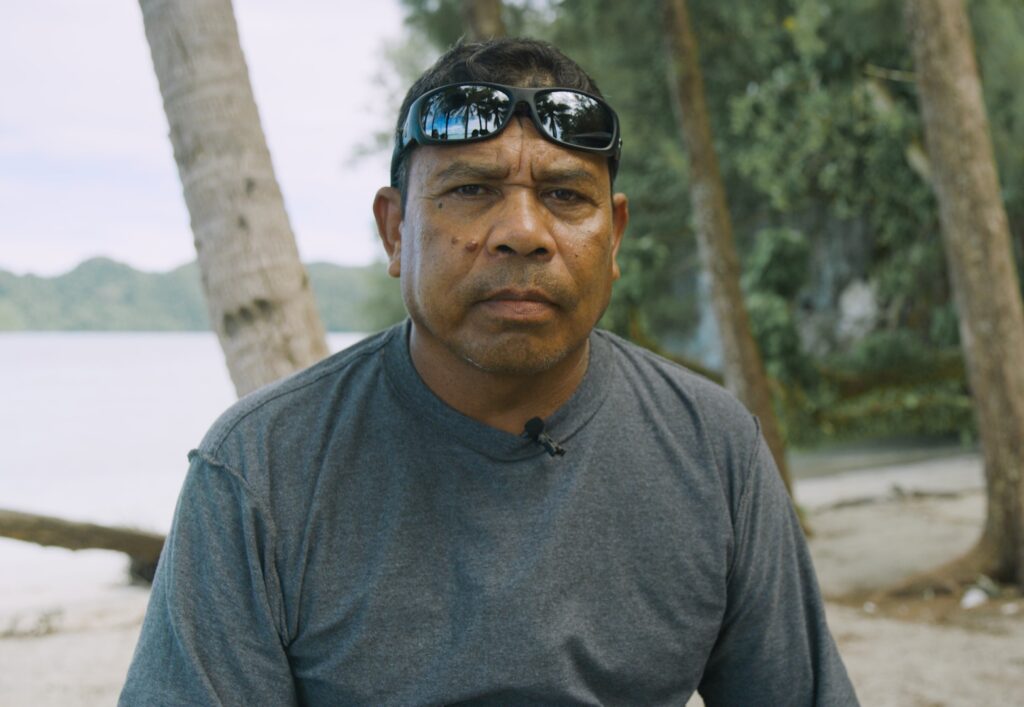 |
IYAFA Feature: Adolph Demei, Palauan ProtectorHis love for fishing began as a child. Now, 59-year-old Adolph Demei has made it his mission to protect Palau’s coastal waters and its marine heritage. Read about Adolph and other fishers we are celebrating this International Year of the Artisanal Fisheries & Aquaculture (IYAFA). |
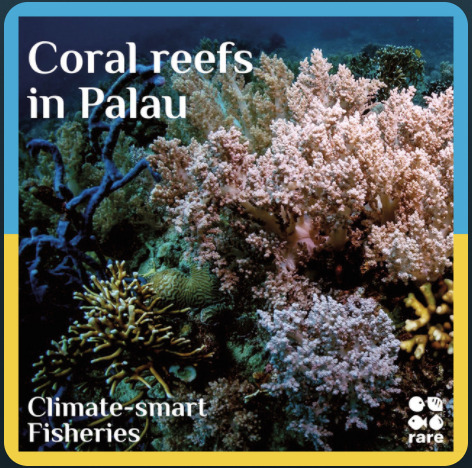 |
Program Highlights
|
Fish Forever Round-up
The Fish Forever Data Portal
*Real-time program data. For more details, see https://portal.rare.org.
Science & Technology
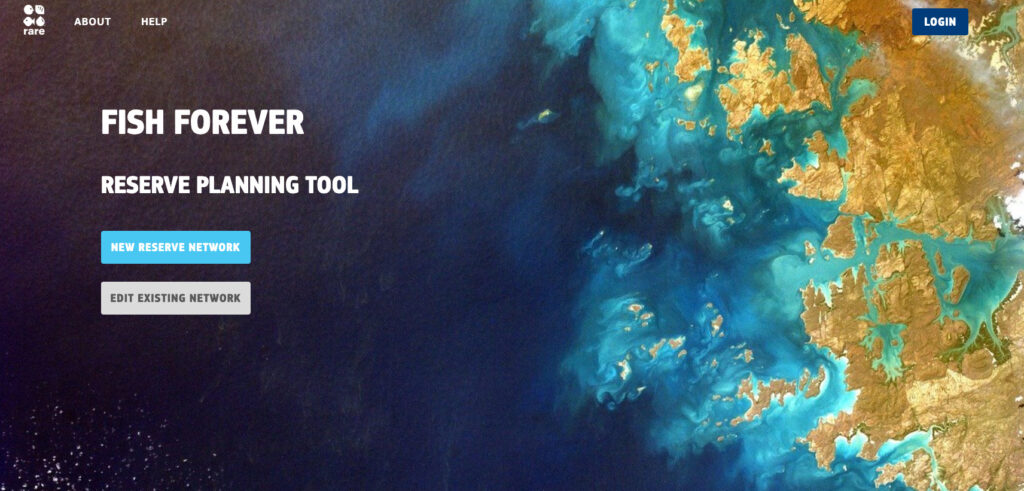
Finalizing the Network of Marine Reserves Planning Tool: Rare has finalized the latest version of the Network of Marine Reserves (NMR) planning tool. The tool allows users to visualize a region’s available spatial data and interactively choose a network of marine reserves that meets program targets. Fish Forever in Mozambique will pilot the tool with implementing partners. In the coming weeks, Rare will begin training other country teams, who will then adapt and translate the training materials to fit their needs.
Rolling out the Fisheries Management Assessment (FMA) Tool for Management Bodies: Like the Network of Marine Reserves planning tool, the FMA tool is also ready to be used by management bodies. Rare will complete its training materials in the coming weeks. The team has continued to make enhancements to other monitoring and evaluation tools as well, like the ecological dashboard and the household survey. The updated ecological dashboard includes new data showing trends in key ecosystem health indicators. The household survey will soon include new questions to dig deeper into gender mainstreaming, behavior adoption, climate change, and finances.
Pacific Islands: Palau and Federated States of Micronesia (FSM)
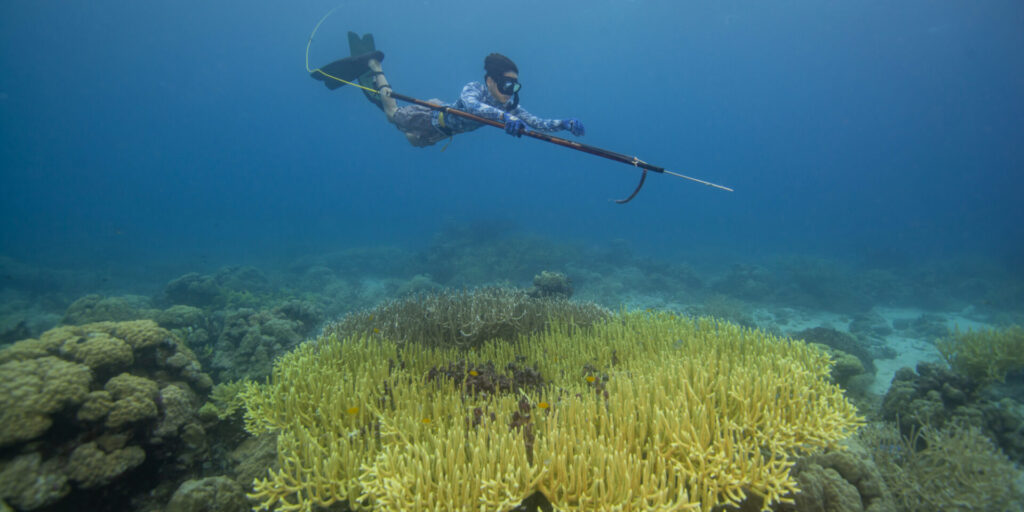
Palau hosts The 2022 Our Oceans Conference: The 7th annual Our Ocean Conference (and the first hosted by a small island developing state (SIDS)) provided a unique opportunity to demonstrate the important role of SIDS, Indigenous Peoples, and local fishing communities in sustainably managing ocean and coastal resources and protecting them from threats like overfishing and climate change. At the event, Rare convened partners, hosted events, and even took center stage to highlight our community-led approach to ocean conservation and the importance of focusing on the territorial seas and coastal communities. Events included a Ministerial Dialogue, Fisher Leaders’ Dialogues, a Coastal 500 Champions’ Call, and a session with youth delegates. See Rare’s full engagement, videos, and output statements here.
Our Ocean Conference Preparations with Fishers: Rare, together with Ebiil Society, Bureau of Fisheries, The Nature Conservancy, and others, hosted a two-day fisher’s forum in March with resource users, managers, and practitioners to identify the top issues facing coastal fisheries, solutions being put forward, and the roles that all stakeholders play. This information formed the basis of the Fisher Leader Dialogue Rare hosted during The Conference. The Dialogue resulted in a global statement from fishers of 9 countries, presented during the Minister’s Dialogue side event, that outlined the importance of small-scale fishers and spotlighted solutions for sustainable, community-led conservation of Palau’s coastal ocean waters.
Rare and Melekeok state co-host a successful fishing derby: Rare partnered with the Melekeok State Government and Palau’s Fishing Association to conduct the Rare/Melekeok State Lake Ngardok 25th anniversary fishing derby. During the event, which aligned with the Palau Sports Fishing Association’s international derby standards, Rare shared information about fisher registration while fishers landed and submitted yellowfin tuna and swordfish (a record catch for such a derby). Attendees included artisanal fishers, commercial fishers from Ngiwal and Melekeok states, community members, and the Bureau of Fisheries; the latter recorded catch data and raised awareness of the benefits of a national fisher registration system. The derby hosts divided the fish evenly, sending every household in the community home with large fillets for their personal consumption.
Podcast: Conserving Coral Reefs in Palau: Palau is the conservation nation. In a podcast produced in partnership with Puma Podcasts, Rare brings you to the frontlines of ocean conservation to learn how Palau safeguards its coral reefs.
Philippines
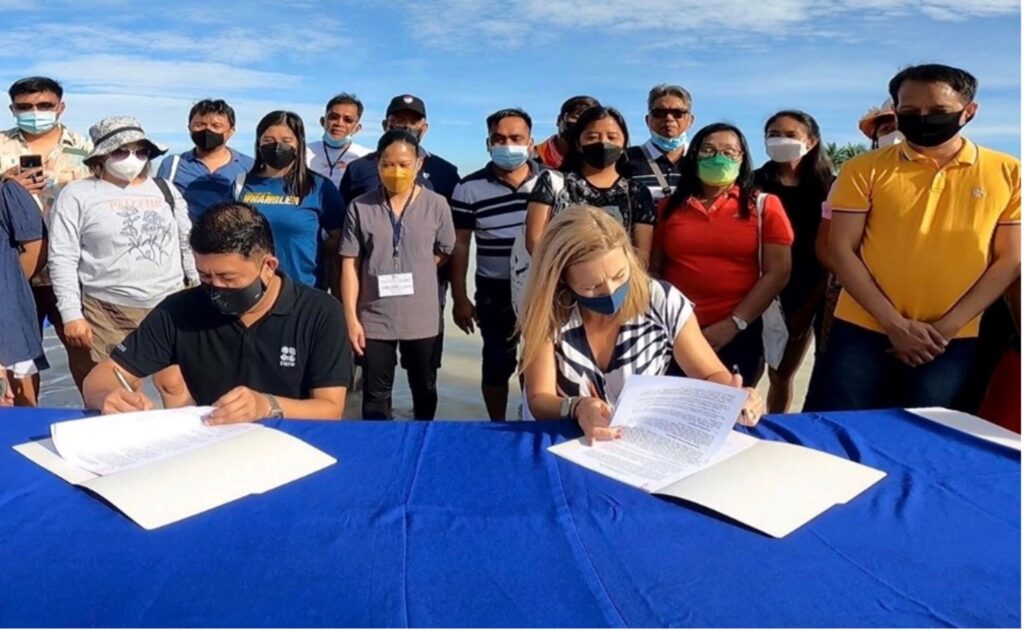
Rare, Peace Corps sign new partnership agreement: Rare and the U.S. Peace Corps signed a new 5-year agreement in March to jointly support sustainable coastal resource management in the Philippines. Fisheries and agricultural officers and environment officers from 29 local government units attended the signing in Bohol’s Dauis municipality, which coincided with a training to strengthen their fisheries management capacity. The renewed partnership builds on the positive results of a case study related to historic collaboration of both organizations. Under the new agreement, Rare and the U.S. Peace Corps will design and deliver projects that improve the resilience of coastal fishing communities and marine ecosystems. Read the press release here.
Improving fisher households’ financial decision-making: Rare partner communities in the Negros Oriental province are engaged in a pilot program, “Pangarap Abutin, Pamilya Kaya Natin,” supported by the Sun Life Foundation, Inc., to improve household financial decision-making. Over the last few months, Rare’s Innovative Finance team leveraged behavior science in a series of activities, including coaching and mentoring sessions, designed to build knowledge and promote financial resilience in coastal fishing communities. Participants who completed the program took part in a Moving Up ceremony on March 30 to celebrate the important milestone in their Fish Forever journey. Watch the video here.
University of the Philippines – Visayas and Rare sign MOU: The University of the Philippines (UP) in the Visayas signed a memorandum of understanding with Rare Philippines in March to share resources and build resilient and sustainable coastal communities and ecosystems. The Institute of Fisheries Policy and Development Studies of the College of Fisheries and Ocean Sciences will serve as the focal unit for UP Visayas in co-designing and implementing campaigns, research, and policy initiatives with Rare for up to three years. In his remarks, UP Visayas Chancellor Clement Camposano emphasized the need for multifaceted approaches to community engagement, while Rare Philippines Vice President Roquelito Mancao elevated the importance of citizen science in public service initiatives.
Indonesia
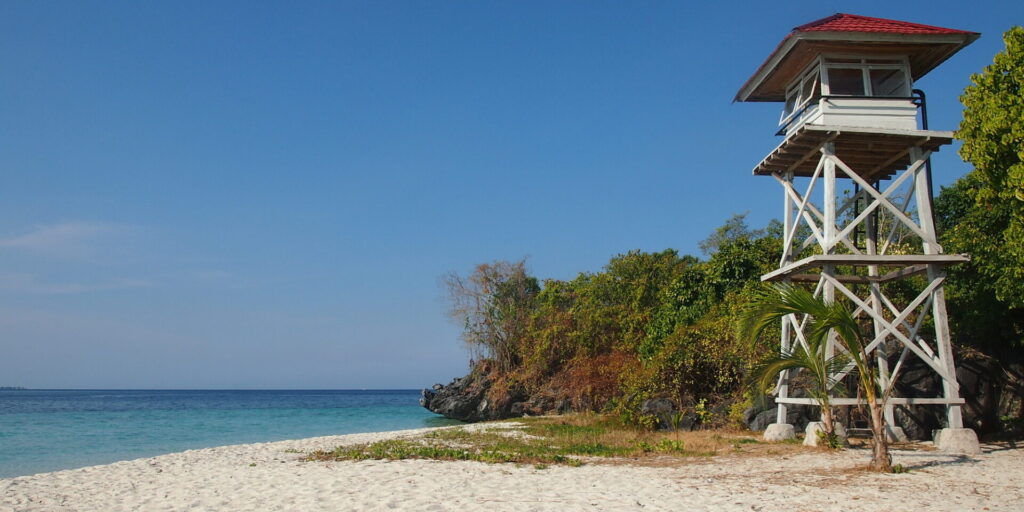
Indonesia’s National Village Fund directs money to small-scale fisheries: Following a Buton District regulation, Rare organized a workshop series from October-March 2022 to facilitate allocation of sustainable financing for 15 villages represented by three fisheries management bodies. Village heads, planning officers, and legislative and fisher representatives agreed to allocate at least $USD 60,000 (from the annually-allocated national Village Funds) to support a managed access with reserves approach and fisheries related activities across the areas. The allocation marks the first time Indonesia’s National Village Fund has been directed to small-scale fisheries management. Village leaders will allocate funds to community-surveillance assets and activities, including gasoline and surveillance boats and kits, marking buoys, fisher training programs, community awareness activities, and post-pandemic recovery activities
Approving Southeast Sulawesi’s managed access with reserves management plan: In addition to the six managed access with reserves (MA+R) area management plans awaiting approval by the Southeast Sulawesi Provincial Governor, the Provincial Office for Fisheries and Marine Affairs technical team evaluated 10 additional fishery management bodies and their management plans. The site evaluation is the first step before official submission and approval of the 10 plans. Prior to the submission, Rare will conduct an additional technical meeting with the MA+R Working Group members to align and finalize recommendations for the Provincial Governor regarding the proposals. Following legal processes at the province legal bureau, Rare expects all 16 communities will receive governor approval for their MA+R plans in 2022.
Preserving mangroves in Indonesia: In a podcast produced in partnership with Puma Podcasts, Rare brings you to the frontlines of ocean conservation to learn how Indonesia is preserving its mangroves.
Analyzing paper-based fisheries catch recording data: Since 2018, Rare has worked with nearly 200 fishers in three remote program sites to record their catch using a paper-based system to compensate for unavailable digital infrastructure. District government officers have inputted data from 4,700 fishing trips into a government database and together with Rare, presented the results to the fishers and trained them in conducting basic analysis to determine adaptive and measurable actions to better sustain their fisheries. Rare also introduced financial literacy and management concepts to better equip fishers to use the data to manage daily household finances and fishing businesses.
Mesoamerican Reef (MAR)
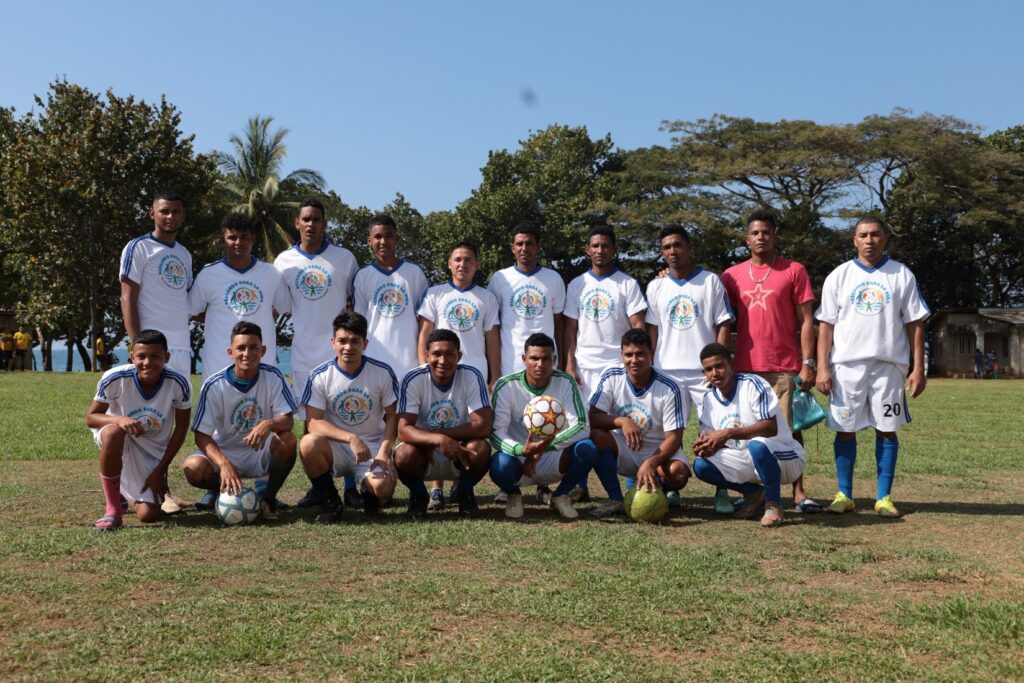
Advocating for local and national small-scale fisheries reform: In February, Rare introduced Fish Forever to Congressman Ariel Montoya, leader of the Honduran Congress’ Environmental Commission, and the newly appointed Vice Minister of Environment, Jorge Salaverry. Congressman Montoya expressed interest in supporting coastal management and protection and committed to pursuing legal reform as a key priority of his first year in office; Rare also held similar meetings with the new Protected Areas Director, the Coordinator for Honduras’s Social Development and Inclusion Secretariat, and celebrated Coastal 500’s growth with three newly elected Honduran mayors signing the local leaders’ pledge and reaffirming their predecessor’s commitment to coastal fishers and marine protection. This momentum complements Rare’s early efforts to establish (and ultimately lead in facilitating) a fisher-led Taskforce to bring the sector’s priorities and the Managed Access approach to the national stage.
Communities advocate for expanding Honduras’s no-take reserve network: In March, Rare kicked off community negotiations to expand Santa Fe municipality’s network of fully-protected marine reserves. Lively discussions and map drawing characterized a morning that concluded with Quinito’s fishers proposing and declaring their support to close a 90 km2 area to fishing. Rare joined Quinito’s fishers in celebrating their commitment and cheering on those who competed in a soccer tournament wearing uniforms displaying the Fishing for Life campaign logo. Rare recently replicated this event in the neighboring Betulia community and will continue engaging the rest of Santa Fe’s coastal communities in upcoming months.
Strengthening Omoa’s fisher associations and micro-businesses: In March, Omoa celebrated the “Feria del Mar,” a campaign event to promote responsible fishing and fish buying behaviors and strengthen the local fisheries value chain. Through a pop-up market, fisher associations and micro-businesses sold fresh fish, processed products, and cooked delicious meals to make visitors aware of the high-quality, responsible fish products they have for sale. The participating associations and women’s groups proudly displayed their businesses’ logos and slogans during the event—created for the market with help from Rare, the Center for Marine Studies (CEM), and a local university. This effort is part of Rare and CEM’s strategy to promote the financial inclusion of small-scale fisheries households by creating new market opportunities for them and strengthening and diversifying their operations.
Mozambique
New video depicts the success of community-based fishing in Mozambique: From 2018-2021, Rare and the Blue Action Fund partnered to empower coastal communities in Mozambique to protect marine biodiversity and improve local livelihoods. This showcases the project’s work engaging communities in six districts of Mozambique, extending vital support to small-scale fishers, fish buyers, savings club participants, and other community members. The project benefitted over 41,000 people directly and over 158,000 people indirectly. The video features community members and Rare staff perspectives about how Rare’s community-based approach has helped people and nature. The film could also not be timelier. A report made headlines this month when it found that climate change makes cyclones impacting eastern Africa stronger. Our work is critical to the economic and climate resilience of coastal communities in Mozambique.
Brazil
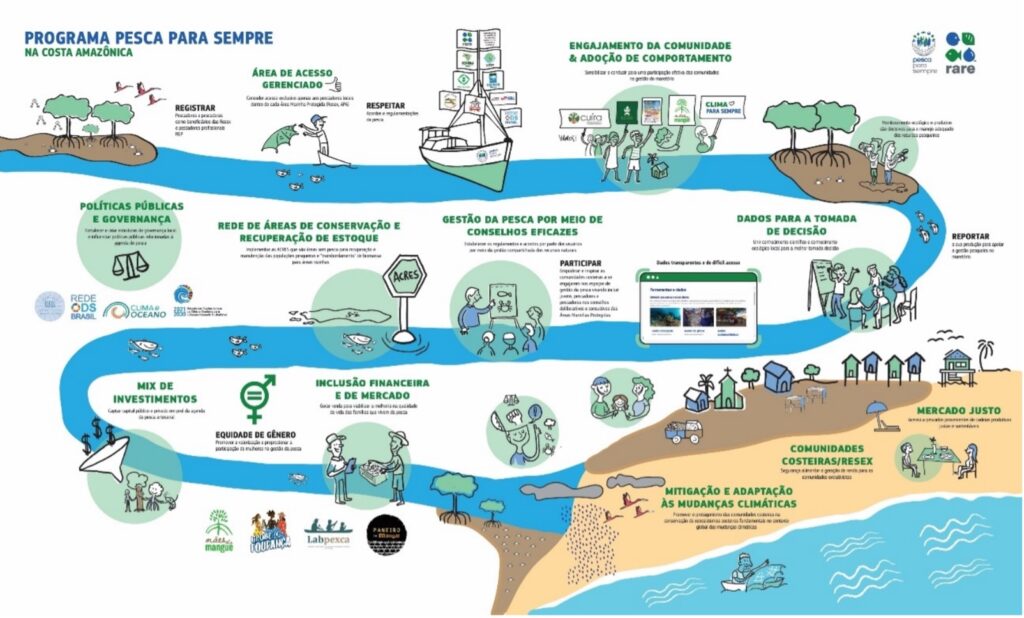
20 years of Resex in Brazil: In March, Rare in Brazil, together with partners, celebrated the 20th anniversary of the creation of Marine Extractive Reserves on the coast of Pará state. Together with ICMBio, Rare supported an event, which brought together representatives from government institutions, academia, 12 local Resex associations and civil society, to evaluate over two decades of implementing this Marine Protected Area model that promotes participatory fishery management.
22 Savings Clubs and Growing: By the end of 2021, Rare Brazil has helped create 22 savings clubs, engaging 300 women in saving for their futures. The clubs facilitate saving and discussions, which have ranged from women’s health and domestic violence to managing financial resources and local issues in their communities. In 2022, Rare Brazil aims to promote another 24 new clubs, forming a group of more than 900 women impacted by the initiative.
FIELD-BUILDING RESEARCH
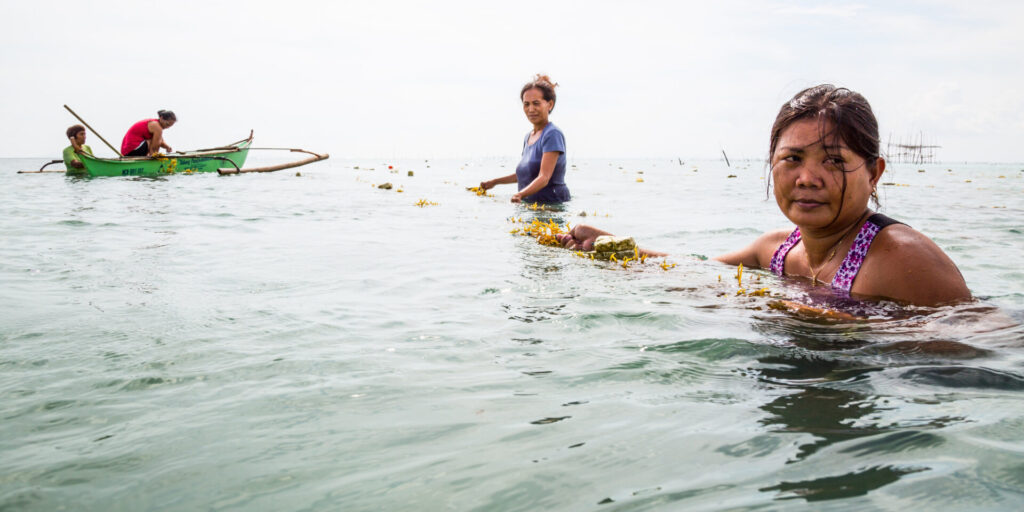
Spatial Solutions and Their Impacts When Reshuffling Coastal Management Priorities in Small Islands with Limited Diversification Opportunities (March 2022)
André, L.V.; Van Wynsberge, S.; Chinain, M.; Gatti, C.M.I.; Liao, V.; Andréfouët, S. (2022) Spatial Solutions and Their Impacts When Reshuffling Coastal Management Priorities in Small Islands with Limited Diversification Opportunities. Sustainability, 14, 3871. https://doi.org/10.3390/su14073871
Global and external factors influence coastal fishing area activities, like artisanal fishing, and their fluctuations can threaten the activities’ sustainability. While diversifying activities supports food security and community resilience to global disruptions, on small, coastal islands, diversifying activities can also lead to spatial conflicts, such as competition for the same resource.
This study demonstrates the use of the Systematic Conservation Planning (SCP), a marine spatial planning approach that identifies the “best objective-cost compromises in the selection of priority sites” (the approach is similar to the Marxan reserve site selection tool that Rare has utilized). The South Pacific Island studied is dedicated to aquaculture farming but has reached spatial capacity and is seeing decreased global demand for black pearl farming. The SCP identified areas for aquaculture, sanctuaries and traditional fishing grounds and generated diversification options Lessons learned from the study include the need to solicit feedback from local stakeholders about the feasibility of solutions generated, and the potential of using a socioeconomic model to complement the SCP by revealing each scenario’s unforeseen economic consequences.
Managing fisheries for maximum nutrient yield (February 2022)
Robinson, J. P., Nash, K. L., Blanchard, J. L., Jacobsen, N. S., Maire, E., Graham, N. A., MacNeil, M. A., Zamborain‐Mason, J., Allison, E. H., & Hicks, C. C. (2022). Managing fisheries for maximum nutrient yield. Fish and Fisheries. https://doi.org/10.1111/faf.12649
Although fish contribute a substantial number of micronutrients and long-chain fatty acids essential for our diet, fisheries production policies have never included a framework that considers nutritional outcomes in fisheries management. To combat global micronutrient deficiencies and close the nutrient gap in coastal populations, this study recommends shifting from regulating catch volumes towards nutrient yields that reach dietary requirements, since fish vary significantly in their nutrient content. This study’s authors devised a nutrient-sensitive approach to fisheries management, introducing a conceptual framework to estimate Maximum Nutrient Yield (MNY) like the Maximum Sustainable Yield (MSY) currently used in fisheries management. The study showed that for Baltic and North Sea fisheries, when MSY is maximized and deployed strategically (or when ecological limits on the fishery are reached), MNY can supply more nutritious seafood. In sum, MNY-based management combined with catch-based management can help identify fisheries that contribute the highest nutrient yields and are available and preferred by consumers.
Learning from Experience: Lessons from Community-based Engagement for Improving Participatory Marine Spatial Planning (February 2022)
Maggie Yet, Patricia Manuel, Monica DeVidi & Bertrum H. MacDonald (2022) Learning from Experience: Lessons from Community-based Engagement for Improving Participatory Marine Spatial Planning, Planning Practice & Research, 37:2, 189-212, DOI: 10.1080/02697459.2021.2017101
Marine Spatial Planning (MSP) is a coordinated, public approach to analyzing and designating the distribution of human activities in space and time to avoid spatial conflict between ocean stakeholders. However, as this study points out, MSP is nonetheless often critiqued for its suboptimal stakeholder engagement at the community level. This study, which compared MSP participatory best practices to that of the community-engagement experiences of local and national MSP practitioners in Nova Scotia, Canada, found that when the knowledge and experiences of local governments and community groups are prioritized, MSP’s relevance to coastal communities increases. This study evidences the value of Rare’s managed access with reserve (MA+R) design participatory community workshops, which are held to engage and encourage input from community members in spatially designing managed access areas and reserves.
Fish Forever: A solution to coastal overfishing – delivered by empowering communities through clear rights, strong governance, local leadership, and participatory management – that protects essential fish habitat and regulates fishing activities to replenish and sustain coastal fisheries.
Goal: To deliver replicable and scalable community rights-based management across ten countries, using a global network of 500 local leaders to secure livelihoods for one million fishers, alleviate poverty, ensure food supply, and protect coastal ecosystems from chronic threats.
Fish Forever Countries: Philippines, Indonesia, Mozambique, Brazil, Honduras, Guatemala, and the Pacific Island countries of Palau and the Federated States of Micronesia.
Fish Forever is possible thanks to the support of many, including the following current donors:
